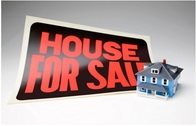Advertisement
Sudden Jolt in Rates Causes Existing-Home Sales to Dip in June

Existing-home sales declined in June, but have stayed above levels of just a year-ago for the past two years, while the median price shows seven straight months of double-digit year-over-year increases, according to the National Association of Realtors (NAR). Total existing-home sales, which are completed transactions that include single-family homes, townhomes, condominiums and co-ops, dipped 1.2 percent to a seasonally adjusted annual rate of 5.08 million in June from a downwardly revised 5.14 million in May, but are 15.2 percent higher than the 4.41 million-unit level in June 2012.
“Affordability conditions remain favorable in most of the country, and we’re still dealing with a large pent-up demand,” said Lawrence Yun, NAR chief economist. “However, higher mortgage interest rates will bite into high-cost regions of California, Hawaii and the New York City metro area market.”
According to Freddie Mac, the national average commitment rate for a 30-year, conventional, fixed-rate mortgage rose to 4.07 percent in June from 3.54 percent in May, and is the highest since October 2011 when it was also 4.07 percent; the rate was 3.68 percent in June 2012.
Total housing inventory at the end of June rose 1.9 percent to 2.19 million existing homes available for sale, which represents a 5.2-month supply at the current sales pace, up from five months in May. Listed inventory remains 7.6 percent below a year ago, when there was a 6.4-month supply.
“Inventory conditions will continue to broadly favor sellers and contribute to above-normal price growth,” Yun said.
The national median existing-home price for all housing types was $214,200 in June, up 13.5 percent from June 2012. This marks 16 consecutive months of year-over-year price increases, which last occurred from February 2005 to May 2006.
Distressed homes—foreclosures and short sales—were 15 percent of June sales, down from 18 percent in May, and are the lowest share since monthly tracking began in October 2008; they were 26 percent in June 2012. The decline in sales of distressed homes, which typically sell at a reduced price, accounts for some of the price growth.
Eight percent of June sales were foreclosures, and 7 percent were short sales. Foreclosures sold for an average discount of 16 percent below market value in June, while short sales were discounted 13 percent.
“Rising values have improved the position of homeowners, and 16 percent of Realtors surveyed in June report they worked with a client that previously had an underwater mortgage,” said NAR President Gary Thomas, broker-owner of Evergreen Realty in Villa Park, Calif. “Of those previously underwater owners, 53 percent were planning to buy another home and 22 percent intend to rent, but 25 percent weren’t sure what they’d do. In addition, 47 percent of Realtors report they have potential sellers who are waiting for additional price appreciation before they sell."
The median time on market for all homes was 37 days in June, down from 41 days in May, and is 47 percent faster than the 70 days on market in June 2012. Short sales were on the market for a median of 68 days, while foreclosures typically sold in 39 days and non-distressed homes took 35 days. Forty-seven percent of all homes sold in June were on the market for less than a month.
First-time homebuyers accounted for 29 percent of purchases in June, compared with 28 percent in May and 32 percent in June 2012.
“First-time buyers should be closer to 40 percent of the market, but they’re held back by the frictions of tight credit and very limited inventory in the lower price ranges in most of the U.S.,” Yun said.
All-cash sales made up 31 percent of transactions in June, down from 33 percent in May; they were 29 percent in June 2012. Individual investors, who account for many cash sales, purchased 17 percent of homes in June, down from 18 percent in May and 19 percent in June 2012.
Single-family home sales slipped 1.1 percent to a seasonally adjusted annual rate of 4.50 million in June from 4.55 million in May, but are 14.5 percent above the 3.93 million-unit pace in June 2012. The median existing single-family home price was $214,700 in June, which is 13.2 percent above a year ago.
Existing condominium and co-op sales fell 1.7 percent to an annualized rate of 580,000 units in June from 590,000 in May, but are 20.8 percent higher than the 480,000-unit level a year ago. The median existing condo price was $210,200 in June, up 15.4 percent from June 2012.
Regionally, existing-home sales in the Northeast declined 1.6 percent to an annual rate of 630,000 in June but are 16.7 percent above June 2012. The median price in the Northeast was $270,400, which is 6.8 percent above a year ago.
Existing-home sales in the Midwest were unchanged in June at a pace of 1.21 million, and are 17.5 percent higher than a year ago. The median price in the Midwest was $170,100, up 8.9 percent from June 2012.
In the South, existing-home sales slipped 1.5 percent to an annual level of 2.03 million in June but are 16 percent above June 2012. The median price in the South was $186,300, which is 13.7 percent above a year ago.
Existing-home sales in the West declined 1.6 percent to a pace of 1.21 million in June but are 11 percent above a year ago. With ongoing supply constraints, the median price in the West was $282,000, a jump of 19.9 percent from June 2012.
About the author





